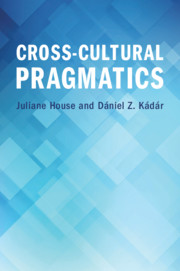Book contents
- Cross-Cultural Pragmatics
- Cross-Cultural Pragmatics
- Copyright page
- Contents
- Figures and Illustrations and Tables
- About the Authors
- Acknowledgements
- 1 Introduction
- Part I The Basics
- Part II Framework
- 6 Analytic Framework
- 7 Expressions
- 8 Speech Acts
- 9 Discourse
- Part III Applying the Framework
- Notes
- Glossary
- References
- Index
7 - Expressions
from Part II - Framework
Published online by Cambridge University Press: 17 September 2021
- Cross-Cultural Pragmatics
- Cross-Cultural Pragmatics
- Copyright page
- Contents
- Figures and Illustrations and Tables
- About the Authors
- Acknowledgements
- 1 Introduction
- Part I The Basics
- Part II Framework
- 6 Analytic Framework
- 7 Expressions
- 8 Speech Acts
- 9 Discourse
- Part III Applying the Framework
- Notes
- Glossary
- References
- Index
Summary
In Chapter 7, we discuss expressions, constituting the ‘lowest’ unit of analysis in our model. We here focus specifically on pragmatically salient conventionalised expressions indicating the interactants’ rights and obligations in a particular context. We propose an analytic procedure by means of which such expressions can be systematically compared by using large corpora. As a case study, we examine Chinese and British English expressions. We focus on expressions popularly associated with the speech acts Request and Apologise. We examine groups of expressions with an increasing degree of complexity.
Keywords
- Type
- Chapter
- Information
- Cross-Cultural Pragmatics , pp. 82 - 104Publisher: Cambridge University PressPrint publication year: 2021

